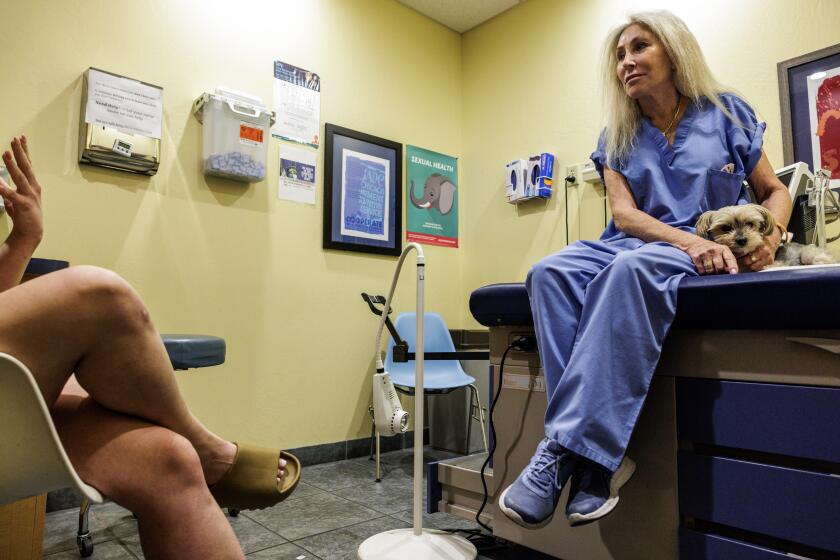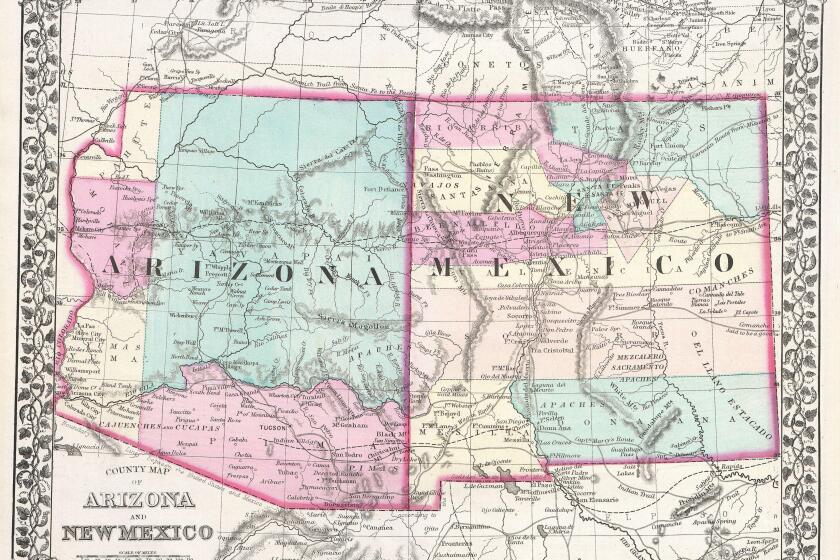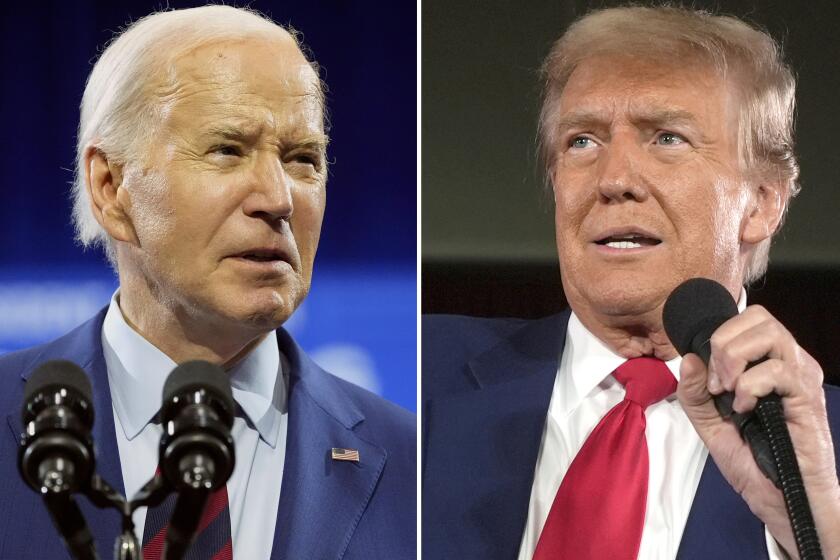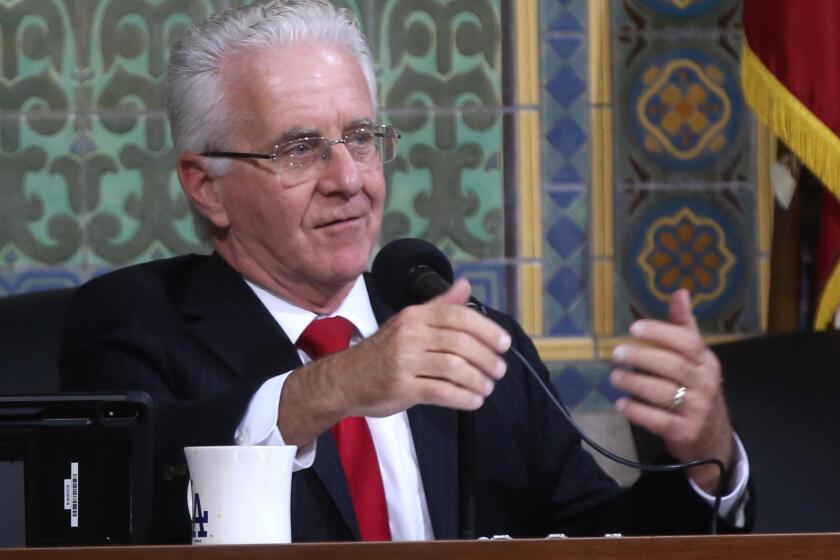Arizona Senate votes to repeal 1864 abortion law, leaving state with 15-week ban

The Arizona Senate voted Wednesday to repeal the state’s 1864 abortion ban, sending a measure to the Democratic governor that would end weeks of turmoil and keep in place a 15-week abortion limit enacted in 2022.
In a testy and emotional session that included angry spats, a senator reading from the Bible and another playing a recording of his daughter’s fetal heartbeat, the Senate voted 16 to 14 to repeal the law, with two Republicans joining Democrats in backing the measure.
The Senate was voting on the language that Arizona’s House of Representatives passed a week ago, when three Republicans joined with Democrats to pass the repeal bill.
The bill will next go to Gov. Katie Hobbs, a Democrat who has called on the Legislature to repeal the pre-statehood ban.
“I’m glad to see the Senate answered my call and voted to repeal the 1864 total abortion ban. While this is essential to protecting women’s health, it is just the beginning,” Hobbs said in a statement once the Senate session ended. “I will never stop fighting for women’s reproductive freedoms.”
The Senate’s actions Wednesday, which were punctuated by angry calls from a gallery filled with activists, underscore how animating an issue abortion will be in November’s election. The two Republicans — Sens. T.J. Shope and Shawnna Bolick — took heat from their fellow Republicans for voting to repeal the law. Multiple senators choked up during their speeches, and one compared his emotions to “like when 9/11 hit.”
“Our Democrat colleagues who are very good at sticking together ... they vote together,” said Sen. Dave Farnsworth. “Unfortunately, on this side of the aisle, we are not so good at doing that.”
Amid the political turmoil brought on by the Arizona Supreme Court reinstating an 1864 abortion law, it was business as usual at a Phoenix clinic. Optimism reigned for both proponents and foes of abortion rights.
Shope did not explain his vote during the legislative session, but wrote previously that he supported the repeal because “15 weeks is what my district believes to be an appropriate timeline.”
Bolick, who is married to Arizona Supreme Court Justice Clint Bolick, who ruled to uphold the ban, defended her vote. She took more than 20 minutes to tell the stories of three difficult pregnancies, provoking multiple other legislators — including Senate President Warren Petersen — to interrupt, complaining that her stories were not related to her vote.
“The comments are germane because not all pregnancies are the same,” she said.
When finishing her three stories, Bolick said, “I know the chronicles of these pregnancies quite intimately because they’re all my own.”
She added that the proposed constitutional amendment to protect abortions goes too far, concluding, “I want to protect our state constitution from unlimited abortions up until the moment of birth. … I am here to protect more babies.”
Data for Progress, a progressive think tank, polled Arizonans the day after the state Supreme Court ruling, and found that 66% of likely voters disapproved of the court’s decision to ban nearly all abortions. The ruling sent Republican leaders in the state scrambling to find a solution that would appease voters ahead of November.
“I’ll hear my colleagues say … it’s politically astute because we might lose votes, we might lose the Legislature. We might lose the presidential election,” Republican Sen. Wendy Rogers said Wednesday. “And I say to you, it’s more important to do what’s right. Because maybe not in this life, but after this life we will meet our maker. And whatever faith you are, this is what matters.”
The Biden campaign has teed up abortion as a top motivating issue for Democrats this fall, especially in battleground states. While the Arizona Legislature bickered over its law, Vice President Kamala Harris gave a speech on reproductive freedom in Florida to draw attention to that state’s six-week abortion ban, which went into effect Wednesday.
“In states across our nation, extremists have proposed and passed laws that criminalize doctors, punish women,” Harris said. “Laws that threaten doctors and nurses with prison time — even for life — simply for providing reproductive care. Laws that make no exception for rape or incest. Even reviving laws from the 1800s.”
William Howell wrote the Arizona law banning abortions in 1864. On Tuesday, 160 years later, Arizona’s Supreme Court reinstated the law.
The Arizona Supreme Court set off a firestorm when it ruled in early April to ban all abortions except when a woman’s life is at risk — a provision that was added to Arizona’s code in 1864, decades before the territory became a state. The 15-week ban, which Arizona is set to return to, does not include exceptions for rape or incest. It does allow for abortions, even after 15 weeks, if a doctor determines there is a medical emergency.
The repeal will not go into effect until 90 days after the Legislature concludes its session — which may be weeks away. The 1864 law could still go into effect in June, and remain active until the legislative session concludes and the 90-day period is completed. Abortion rights activists cautiously rejoiced Wednesday.
“We appreciate the efforts of pro-reproductive freedom lawmakers to repeal this harmful abortion ban. Unfortunately, Arizonans will still be living under a law that denies us the right to make decisions about our own health,” Chris Love, a spokesperson for Arizona for Abortion Access, said in a statement. “Arizonans cannot afford to celebrate or lose momentum. The threat to our reproductive freedom is as immediate today as it ever was.”
Activists say they have enough signatures to put a proposed constitutional amendment on November’s ballot that would allow for abortions in Arizona. Abortion is poised to be a top issue for voters in the swing state, which President Biden carried narrowly in 2020.
More to Read
Get the L.A. Times Politics newsletter
Deeply reported insights into legislation, politics and policy from Sacramento, Washington and beyond. In your inbox three times per week.
You may occasionally receive promotional content from the Los Angeles Times.









